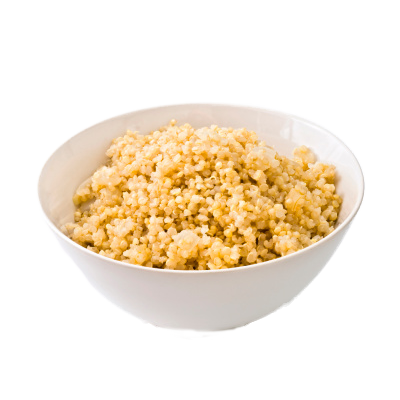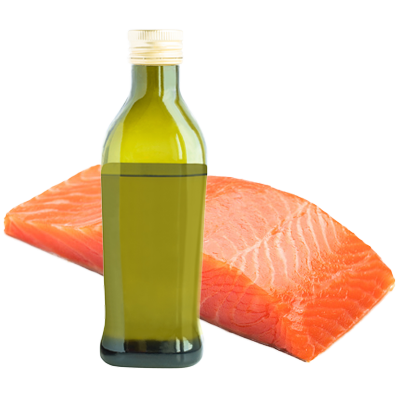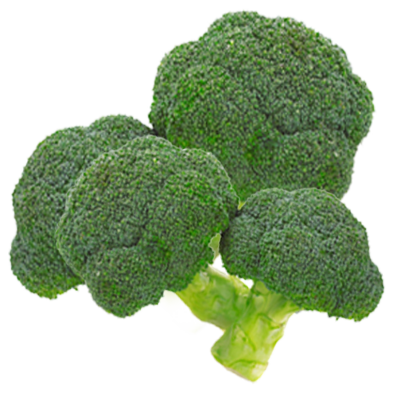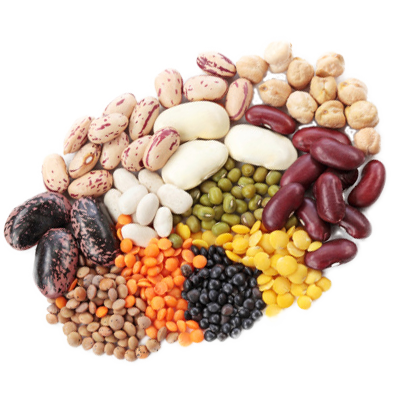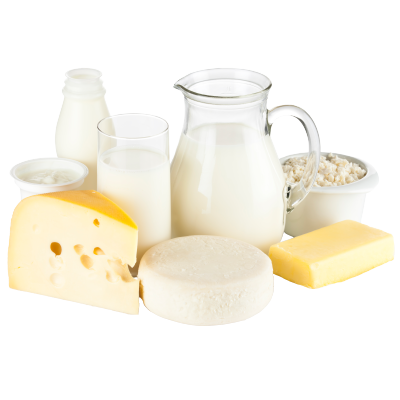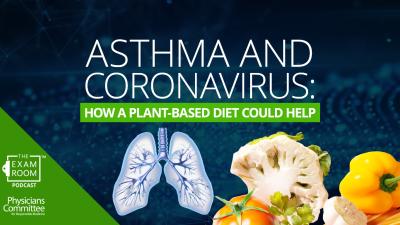Diet and Asthma
A plant-based diet can help prevent and manage asthma, while dairy products and high-fat foods raise the risk.
Asthma is a common chronic condition in which the airways become narrow and inflamed—leading to difficulty with breathing, coughing, wheezing, and shortness of breath. It’s a condition that affects almost 25 million Americans, according to the Centers for Disease Control and Prevention.1
Our research team at the Physicians Committee examined the evidence related to diet and asthma and found that certain foods—including fruits, vegetables, whole grains, and other high-fiber foods—can be beneficial, while others—such as dairy products and foods high in saturated fat—can be harmful.2 It is important to continue to work closely with your health care provider to monitor your health and manage your asthma medications, even as you make dietary changes.
Benefits of a Plant-Based Diet
A Mediterranean diet emphasizing plant-based foods has also been associated with improved lung function, improved asthma symptoms such as wheezing, reduced asthma medication use, reduced asthma attack severity, and reduced hospital admissions due to asthma.3-5 Children born to women who eat a Mediterranean diet during pregnancy have also been found to be at a lower risk of developing asthma symptoms.6 A study of Peruvian children found that fruits, vegetables, legumes, and cereals and reduced meat intake lowered the odds of asthma risk.7
How does a plant-based diet help? Plant-based diets have been shown to reduce systemic inflammation, which can exacerbate asthma.8 Plant-based diets are also high in fiber, which has been positively associated with improvements in lung function.9-10 Fiber promotes a healthy gut microbiome, which plays a role in immune responses and airway diseases.2
Fruits and Vegetables
Eating fruits and vegetables may be especially beneficial when it comes to asthma. A meta-analysis of more than 40 studies has shown that high consumption of fruits and vegetables is linked to a decreased risk for asthma in children and adults.11 Fruits and vegetables have also been shown to improve lung function and make asthma severity and symptoms, including wheezing, more manageable.12
Researchers suggest that the antioxidants and flavonoids found in plant foods may have a protective effect, by reducing inflammation in the body and the airways. A study compared a low antioxidant (less than one serving of fruit and two servings of vegetables) to a high antioxidant diet (five servings of vegetables and two servings of fruit per day), and after 14 weeks, those who ate more fruits and vegetables had better lung function and a lower risk of asthma exacerbation, compared to those who ate fewer.13
Dangers of Dairy
Studies show that dairy consumption can raise the risk for asthma and worsen symptoms. One study found that children who consumed the most dairy had higher odds of developing asthma, compared with the children consuming the least.14 In another study, children with asthma were placed in either a control group, where they made no dietary changes, or in an experimental group where they eliminated dairy and eggs for eight weeks. After eliminating dairy, the experimental group experienced a 22% improvement in peak expiratory flow rate—a measure of how fast the children were able to exhale—while children in the control group experienced a 0.6% decrease.15
High-Fat Foods
High fat intake, consumption of saturated fat, and low fiber intake have all been associated with airway inflammation and worsened lung function in asthma patients.2 Researchers tested the effect of saturated fat by asking participants with asthma to reduce their saturated fat intake for 10 weeks.16 At the end of the trial, participants experienced reduced airway inflammation. A whole food, pant-based diet is naturally lower in saturated fat, as dairy, meat, eggs, and processed foods are the main sources of saturated fat in the standard American diet.
Body Weight
Maintaining a healthy body weight can reduce the risk for asthma and help with managing symptoms. Studies have shown that overweight and obese children are at higher risk of developing asthma, with the risk increasing as the degree of obesity increases. A study from California found that children and adolescents who were overweight, moderately obese, or extremely obese had a 16%, 23%, and 37% increased risk of obesity, respectively.17 In those with asthma, a higher BMI is associated with worse asthma control in children and adolescents and asthma exacerbation in adults.
Research published in 2024 in the Annals of Allergy, Asthma & Immunology suggests that this link between obesity and asthma may be due to many factors, including altered mechanics of breathing secondary to obesity; increased obstructive sleep apnea due to obesity; increased acid reflux due to obesity, which then triggers symptoms of asthma; and increased chronic inflammation resulting from increased adipose tissue.18 Exercise and diet interventions that result in weight loss can improve asthma symptoms and lung function, and reduce asthma attacks and medication use.18 Diet changes for children should always be supervised by health care professionals and should focus on building healthy lifestyles rather than solely on weight loss, to discourage unhealthy relationships with food and weight.
A plant-based diet is a powerful tool for improving the symptoms and control of asthma and could even reduce the amount of medication you require. It’s not only what goes into our lungs that is important, but what goes into our stomachs too.
Roxanne Becker, MBChB, DipIBLM, Medical Editor and Educator, Physicians Committee
Plant-Powered Prescription
- Eat five servings of fruits and vegetables each day to fight the inflammation associated with asthma.
- Replace dairy milk with soy or another nondairy milk.
- Reduce your intake of saturated fat by eliminating dairy, meat, eggs, ultra-processed foods, and tropical oils such as coconut and palm oil.
Steps To Help Prevent and Manage Asthma
Eat Fruit
Antioxidants and flavonoids in fruit can improve lung function.
Eat Whole Grains
Whole grains are associated with reduced inflammation, which can benefit asthma symptoms.
Avoid Saturated Fat
Studies show that high saturated fat intake is associated with airway inflammation.
Eat Vegetables
Sulforaphane found in cruciferous vegetables can reduce the risk of respiratory inflammation.
Consume More Fiber
Fiber consumption can positively impact inflammation, oxidation, and gut microbiota.
Avoid Dairy Products
Studies show that children who consume the most dairy have the highest risk for asthma.
Asthma and Coronavirus
How a Plant-Based Diet Could Help
Learn More
DID YOU KNOW?
High dairy consumption increases overall mortality.
References
- Centers for Disease Control and Prevention. Most recent national asthma data. Updated May 10, 2023. Accessed April 22, 2024. https://www.cdc.gov/asthma/most_recent_national_asthma_data.htm
- Alwarith J, Kahleova H, Crosby L, et al. The role of nutrition in asthma prevention and treatment. Nutr Rev. 2020;78(11):928-938. doi:10.1093/nutrit/nuaa005
- Romieu I, Barraza-Villarreal A, Escamilla-Núñez C, et al. Dietary intake, lung function and airway inflammation in Mexico City school children exposed to air pollutants. Respir Res. 2009;10(1):122. doi:10.1186/1465-9921-10-122
- Calatayud-Sáez FM, Calatayud Moscoso Del Prado B, Gallego Fernández-Pacheco JG, González-Martín C, Alguacil Merino LF. Mediterranean diet and childhood asthma. Allergol Immunopathol (Madr). 2016;44(2):99-105. doi:10.1016/j.aller.2015.04.007
- Lv N, Xiao L, Ma J. Dietary pattern and asthma: a systematic review and meta-analysis. J Asthma Allergy. 2014;7:105-121. doi:10.2147/JAA.S49960
- Zhang Y, Lin J, Fu W, Liu S, Gong C, Dai J. Mediterranean diet during pregnancy and childhood for asthma in children: a systematic review and meta-analysis of observational studies. Pediatr Pulmonol. 2019;54(7):949-961. doi:10.1002/ppul.24338
- Rice JL, Romero KM, Galvez Davila RM, et al. Association between adherence to the mediterranean diet and asthma in Peruvian children. Lung. 2015;193(6):893-899. doi:10.1007/s00408-015-9792-9
- Strombom A. Asthma -prevention and treatment with a plant-based diet. Int J Pul Resp Sci. 2022;5(5):001-005. doi:10.19080/IJOPRS.2022.05.555672
- Hanson C, Lyden E, Rennard S, et al. The relationship between dietary fiber intake and lung function in the National Health and Nutrition Examination Surveys. Ann Am Thorac Soc. 2016;13(5):643-650. doi:10.1513/AnnalsATS.201509-609OC
- Kan H, Stevens J, Heiss G, Rose KM, London SJ. Dietary fiber, lung function, and chronic obstructive pulmonary disease in the Atherosclerosis Risk in Communities Study. Am J Epidemiol. 2008;167(5):570-578. doi:10.1093/aje/kwm343
- Seyedrezazadeh E, Moghaddam MP, Ansarin K, Vafa MR, Sharma S, Kolahdooz F. Fruit and vegetable intake and risk of wheezing and asthma: a systematic review and meta-analysis. Nutr Rev. 2014;72(7):411-428. doi:10.1111/nure.12121
- Hosseini B, Berthon BS, Wark P, Wood LG. Effects of fruit and vegetable consumption on risk of asthma, wheezing and immune responses: a systematic review and meta-analysis. Nutrients. 2017;9(4):341. doi:10.3390/nu9040341
- Wood LG, Garg ML, Smart JM, Scott HA, Barker D, Gibson PG. Manipulating antioxidant intake in asthma: a randomized controlled trial. Am J Clin Nutr. 2012;96(3):534-543. doi:10.3945/ajcn.111.032623
- Han YY, Forno E, Brehm JM, et al. Diet, interleukin-17, and childhood asthma in Puerto Ricans. Ann Allergy Asthma Immunol. 2015;115(4):288-293.e1. doi:10.1016/j.anai.2015.07.020
- Yusoff NA, Hampton SM, Dickerson JW, Morgan JB. The effects of exclusion of dietary egg and milk in the management of asthmatic children: a pilot study. J R Soc Promot Health. 2004;124(2):74-80. doi:10.1177/146642400412400211
- Scott HA, Gibson PG, Garg ML, et al. Dietary restriction and exercise improve airway inflammation and clinical outcomes in overweight and obese asthma: a randomized trial. Clin Exp Allergy. 2013;43(1):36-49. doi:10.1111/cea.12004
- Black MH, Zhou H, Takayanagi M, Jacobsen SJ, Koebnick C. Increased asthma risk and asthma-related health care complications associated with childhood obesity. Am J Epidemiol. 2013;178(7):1120-1128. doi:10.1093/aje/kwt093
- Averill SH, Forno E. Management of the pediatric patient with asthma and obesity. Ann Allergy Asthma Immunol. 2024;132(1):30-39. doi:10.1016/j.anai.2023.10.001


